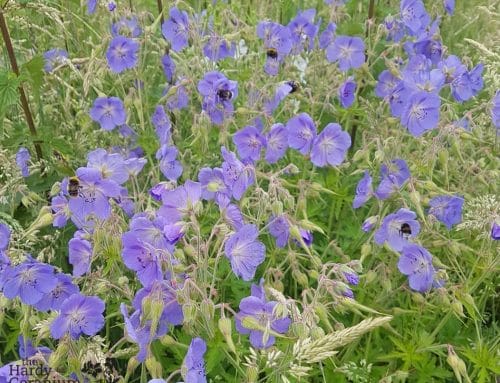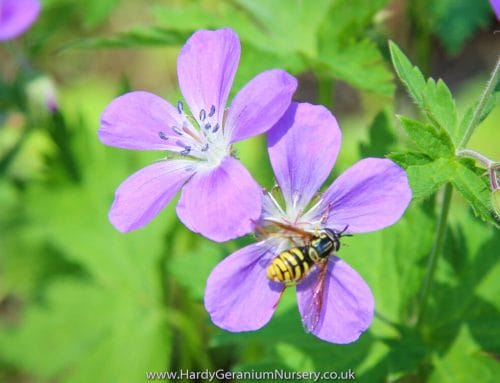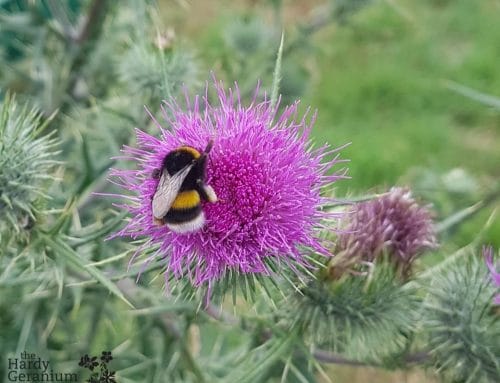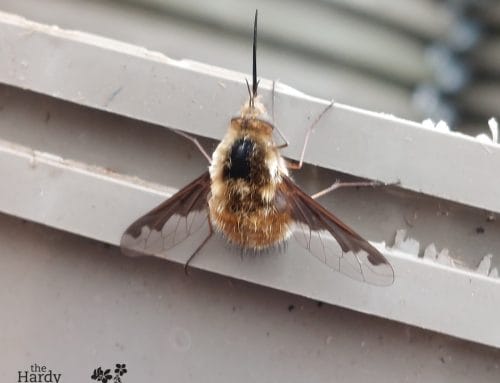I’ve received several questions over the last few weeks regarding bees and pollinators about how to help them and encourage them into gardens. I’m no expert but it’s certainly a hot topic. In short bees see colours differently to humans, as a result, they are often most attracted to flowers that are purple, violet or blue.
They went potty over G. ‘Terre Franche’ in the spring.
They will also target flowers that are easier to access, for example double headed flowers provide more of an obstacle for them and so they are less likely to visit those flowers. Bees are also quite crafty and will nip the backs of flowers to steal the nectar, rather than extracting their meal through the traditional method in exchange for pollination. In the past I had only witnessed this on pea plants and aquilegia, but I have recently seen them do this to geraniums too.
I really love watching the bees at work around the nursery and will frequently find myself helping them out of the tunnels with my trusty butterfly net or finding a food source for one that has become weary. I was especially pleased to discover that a hive of bumble bees has set up home in an abandoned rabbit burrow in the hedgerow at the nursery.
There are many different types of pollinators, Bumble Bees are usually the first that come to mind because let’s be honest, they’re cute and for me at the nursery they are my most frequent visitors. However other pollinators to keep an eye out for are Honeybees, Hoverflies, Moths and Butterflies.
Here are some links to further information on the subject of pollinators that you may find interesting:
How do we know what bees can see? • The Hardy Geranium Nursery
https://www.rhs.org.uk/advice/profile?pid=528
https://www.rhs.org.uk/science/conservation-biodiversity/wildlife/plants-for-pollinators




